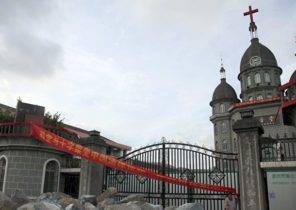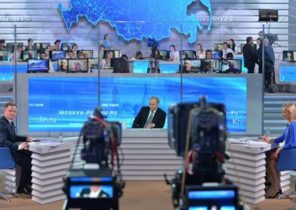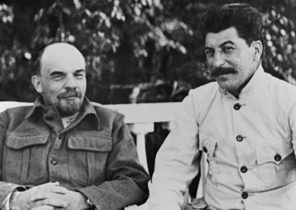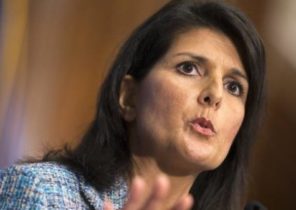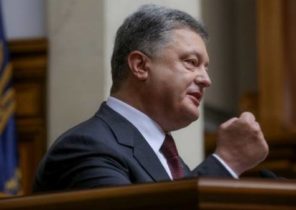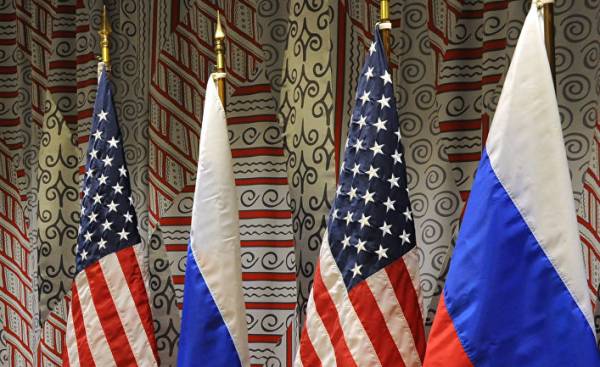
If Rip van Winkle fell asleep in 1992 and woke up in 2017, he probably would be amazed at the variety of things and phenomena, including smartphones and the President of Donald trump. It would also be surprised how little changed the deep structure of world politics after the cold war.
NATO still exists, having expanded through former Warsaw Pact countries to the heart of the former Soviet Union. Van Winkle will be amazed to find that the United States of 2017 to do what would have seemed to him a new cold war with post-Soviet Russia and post-Maoist China. During the first cold war, many conservatives accused the liberals that they were allegedly Russian spies and puppets; in the course of a new cold war, many liberals are making accusations that the President of trump and his supporters are agents of influence of Moscow. Iran is an opponent of America since its transformation into a theocratic regime in 1979, many Americans still considered the main enemy of the United States in the middle East. North and South Korea are still divided and are in a state of perpetual conflict. If Rip van Winkle wants to be in a completely different world order, he should go back to bed, set the alarm for 2050 or 2100.
The degree of inertia in geopolitics should cause special difficulties from the point of view of the realist school of international relations theory. Traditional realism comes from the fact that unions are a temporary solution in response to external threats, in the absence of which they should be eliminated or converted. When realists are moving from the language to the settings, they usually support one or another variant of the strategy of offshore balancing, in which the United States conveys their effect on the least formidable of the great powers of a multipolar world. (In his 2006 book The American Way of Strategy: I called one of them “adaptive strategy”).
In the long run, realists may be right. NATO and the Alliance US-Japan can fizzle out; the United States can cut spending and adopt a policy of offshore balancing. These events will take perhaps more time. Since the fall of the Berlin wall was only 28 years old, and since the collapse of the Soviet Union — 26.
But those of us who consider ourselves realists, should perform it, do we understand the true state of Affairs. The realist school of offshore balancing may be wrong, in contrast to the neoconservative and neoliberal proponents of the global American Empire. There are more than two options of ever-changing alliances and American global hegemony, or Empire. The third option — partition of the world between long-term geopolitical blocks.
The blocks are familiar to all. Section of the globe blocks managed by the superpowers, was the most important fact of the cold war from the end of the Second world war to the 1990-ies.
Initiated by the America unit is sometimes called the “Free world”. This is at best a euphemism, at worst Orwellian distortion of reality. American block during the cold war consisted not only of liberal or democratic countries, but also included the despotic Gulf monarchies and Pro-American dictators in South Korea, Taiwan, the Philippines, South Vietnam (prior to its conquest and absorption of the Communist North in 1975) and most of Latin America.
The “free world” was no more “world” than “free.” He opposed the Communist bloc, whose leaders considered themselves part of a single Marxist-Leninist movement, even when in the early 1950-ies Mao launched the struggle for leadership by Stalin’s successors. “Third world” was not a real block rather comprehensive concept, including neutral countries like India and many other post-colonial States in Asia, Africa and the middle East who sought to maximize their independence from the two superpowers.
Blocks during the cold war were less integrated than many of the ancient or medieval Empire, but much more integrated than old-fashioned disinterested Alliance of independent States in combating a common threat. Post-war West Germany and Japan were at best “semi-sovereign” States, deprived of a truly independent foreign policies and are subject to high degree of informal domination of the USA. They can be described as “protectorates” — a cross between Imperial colonies under the Central government and truly independent allies.
The Soviet bloc in Eastern Europe to the traditional Empire was even closer. In such a sphere of influence, which is determined solely from a military point of view, a great power may insist on his right of veto with regard to foreign military alliances with countries within this sector, allowing them to be independent. This was the situation in Finland during the cold war, but in the countries of the Warsaw Pact, can’t you tell the moment Moscow has created an obedient Communist satraps in all its controlled territories from 1945 to the end of the cold war. “Brezhnev doctrine” affirmed the right of the USSR to interfere in the Affairs of the fraternal peoples of the Communist bloc. The Soviet Union suppressed the anti-Communist uprising by the invasion of 1953 in East Germany, 1956 in Hungary and 1968 in Czechoslovakia. Another invasion has been probably prevented by the introduction in 1981 by Wojciech Jaruzelski martial law in Poland. Dependent Communist regimes of the Eastern bloc was rightly called the “satellites” of Moscow.
In the NATO countries to power never came no though as-that connected with Moscow by a Communist government, so it is not clear what would be the reaction of the West. However, the United States sought to weaken the Communist parties of Western Europe and to strengthen his opponents by means of hidden actions in the early post-war period. But in other places, the United States conducted a series of covert operations to prevent the fall of a dependent state, and the coming to power of Pro-Soviet or neutral leaders. In 1953, the US secretly assisted in the overthrow of the Mossadegh government in Iran trying to overthrow or kill Fidel Castro, contributed to the coups in 1954 and 1973 in Guatemala and Chile, respectively, entered in the 1965 Dominican Republic and 1983 in Grenada, and this is just some of the many American interventions in the politics of other countries. Also during the cold war, the United States waged a major war on the Korean Peninsula and in Indochina, to maintain in power a Pro-American, anti-Communist dictatorship.
Blocks the cold war was an economic, cultural as well as military and ideological organizations. The cold war was, among other things, war, financial, commercial, and industrial exhaustion of the Communist bloc from the us with half a century of application of the most stringent economic sanctions. The strategy of the cold war, the United States encouraged the economic integration of Western Europe and turned a blind eye to mercantilist trade policies of their Japanese, South Korean and Taiwanese protectorates. The Soviet Union during the cold war had its own economic bloc — the Council for mutual economic assistance (1949-91 yy), known in the West as COMECON.
The cold war was fought on the ideological front. Beginning with the seizure of power by the Communists in 1917, the Soviet Union tried to manipulate public opinion in other countries, including the United States, with the help of local Communist party members, spies, and solidary, but non-Communist “supporters.” During the cold war, the United States, its allies and protectorates established their own contrappuntistica advocacy networks and institutions. Some of them, such as Radio “Liberty” was public. In other cases, the anti-Communist propaganda was secretly encouraged by the U.S. government, which through the CIA have funded “Congress for cultural freedom” and the magazine Encounter.
In a sense, blocks the cold war period was much more integrated than the old European colonial Empire or dynastic monarchy. No doubt the fact that the dynastic empires was the state religion, and the colonial Empire was claimed to be the bearers of a universal idea — the Catholic counter-reformation in the case of Spain, of freedom in the case of Britain and the educational mission in the case of France. But the combination of the ruling military alliances, integrated interstate industrialized economies and the constant propaganda war, which lasted for half a century, was from the point of view of the history of new.
It was considered a temporary phenomenon — at least as many expected, the realists (me included). When the Berlin wall fell, many of us believed that the unions and the mindset of the cold war, as well as its institutions will disappear or be radically transformed. In the subsequent “new normal” world, countries large and small to reconsider old alliances based on the cold calculation of its national interests.
It is quite possible. But for now, things are different. The Philippines and Turkey, a former close allies of the United States, flaunt their independence from Washington. But it is only the exception that proves the rule the continued survival of the bloc of the cold war in America. In 1990-e years many feared that a reunited Germany will quickly become a great power and will endeavor to create your own Central Europe. Instead, the United States maintained its dominance within NATO, and the Alliance was expanded eastward, has not yet faced serious resistance from the post-Soviet Russia in Georgia and Ukraine.
We can conclude that realists are mostly right regarding the dynamics of world politics, but not necessarily about its major players. What if the main actors of world politics are — and will remain — not a lot of independent States, and a small number of more or less permanent hierarchical multinational blocks, each of which will be chaired by one or a few dominant nation-States?
Faith in the fact that in the industrial era, the world is transformed into one or more of the military-economic-political agglomerations, rooted in the nineteenth century. In the late nineteenth century, this idea contributed to the competition of the Western powers over foreign ownership. It has also become the main cause of both world wars that occurred against the desire of the German and Japanese regimes to develop and consolidate own blocks or Empire through regional conquest.
In the book “the managerial Revolution”, 1943 a former Trotskyist and a leading theorist of conservatism during the cold war, James Burnham (James Burnham) predicted the emergence of three large blocks after the Second world war, the cores of which will be the United States, Germany and Japan. His work influenced the dystopian vision of George Orwell in his work “1984” involving constant minor conflict between the imaginary units of the superpowers of Oceania, Eurasia and East Asia.
The prophet of Burnham came out lousy. World war II gave way to a bipolar world order, in which the United States and Russia — now the superpowers — became hegemonic competing blocks, Japan is a satellite of America, Germany was divided between blocks, and East Asia and other regions contested by the superpowers in the wars through intermediaries.
But of Burnham, while remaining faithful to the Marxist tradition, to be freed from which he was only recently sought to integrate the theory of global economic and social change in his theory of geopolitics. It was and remains a advantage of approaches similar to the approach of Burnham based on the confrontation between the modern dominant in the West, scientific concepts of the world order, which is isolated, usually only one factor and try to build a theory.
From the point of view of the theory of international relations neorealism in its purest form isolates the power, equating, typically, to military power. Some of its varieties are trying to explain the foreign policy of individual States as a reaction to the conditions polarity: bi-, multi-, one – or polyarnosti. Meanwhile, from another point of view, conventional neoclassical Economics ignores how the nation-state, and blocks as independent economic actors and theorizes trade from the point of view of individuals and firms on a non-existent idealized world market. The third point of view considers political theory, including the theory of liberal democracy, which, as a rule, almost do not pay attention to real events in the area of national security or the economy.
In some areas of scientific activity of idealized models can be useful, but do not contribute to the understanding of world politics. In this case, three isolated approach to international relations theory, theoretical Economics and political philosophy can create a hypothetical world in which each state has the theoretical possibility to join a number of unions for military protection, to another trading bloc — for commercial purposes to the third row of international alliances, combined, perhaps, political beliefs and social values.
In the real world this kaleidoscopic complex. Between military, economic and political areas has always existed a considerable uniformity of approach as during the cold war, and after a quarter of a century since its completion.
In Europe, the degree of parallelism of NATO membership and EU membership is high, though imperfect. Members of both the EU and NATO is strong pressure to conform to common liberal democratic ideology. Poland and Hungary, for example, other members of the EU and NATO believe renounces his former beliefs “illiberal democracies” for their controversial policies associated with public television (Poland) and the regulation of nonprofit organizations and immigration (Hungary) courses, compared to autocratic China or Saudi Arabia it is difficult to distinguish from a policy of “liberal” European neighbors.
In other areas there are significant layering of membership in military alliances and membership in trading blocks. Megaregional trade agreements, supported by the administrations of Bush and Obama, the Transatlantic trade and investment partnership and the TRANS-Pacific partnership was designed in part to strengthen US-initiated Alliance for security in Europe and East Asia. China’s proposed regional comprehensive economic partnership (VREP) was equally geopolitical in his pronounced intention, including many of the same Asian countries that are members of the TRANS-Pacific partnership, but excluding the United States. And there is considerable overlap between the membership of the Shanghai cooperation organization — a military Alliance led by China and including Russia and new economic institutions, supported by China, including a New BRICS development Bank and Asian infrastructure investment Bank. The Eurasian economic Union, Vladimir Putin as geopolitichno as industrially important.
Consideration of security policy and trade as separate spheres, each of which has its own internal laws and is not connected with another, can lead us into confusion, just as in the Indian parable of the blind sages and the elephant, in which the sages were confused in their own feelings when touching the elephant could not understand what the trunk is like a snake, and a large, flat ear, and a tree-like legs were part of the same animal. In our case, these animals are the blocks.
Responsible units means rejecting the idea of national interest as a disparate list of priorities in favor of recognizing that the national interests of both dominant and subordinate powers are often defined by leaders as the preservation or expansion of the bloc to which they belong.
For the ruling power that directs the unit, the latter multiplies national military power and wealth by joining their own people and foreign resources. Given the low fertility rates and the difficulties of productivity through innovation, in a fast and efficient way to increase the total GDP of the bloc is the accession of new members.
The unit may even raise the status of the powers of the second tier. For example, the population of the Eurasian economic Union, which includes Russia, Belarus, Kazakhstan, Kyrgyzstan and Armenia, is 179 million people, of which 143 million in Russia alone.
Needless to say, a force based on territorial expansion and internal growth, has been the strategy of past empires. In conditions of modernity, based on the rules of national self-determination and popular sovereignty the inclusion of additional state territories by the conquest will be considered illegal. But similar to informal empires you can create a block with alliances for security and trade deals, which can be difficult to distinguish from the actual of colonialism, when one of the partners is a weak protectorate, and the other great power or superpower.
At the moment, neoclassical economists and libertarians (two overlapping motion) may argue that the global free market, the economic units does not matter. It’s true, but it is not true; the boundless world market has never existed and will not exist in the absence of a world government. In the split between the blocks of the great powers of the world economy, the industries with the growing expense of economies of scale profit, such as manufacturing, are likely to be most productive and dynamic in the blocks with the largest integrated markets, that is, the internal markets of the densely populated States and more densely populated blocks. Technological and commercial performance, provide scales, provides, in turn, faster growth, higher income per capita and taxes increase in absolute terms, even at low rates of taxation — taxes should be spent, inter alia, for military purposes. It is a successful strategy used larger and more wealthy American unit for the bankruptcy of the Soviet bloc. Mindless mercantilist world of competing units: the bigger the block the better.
The leaders of relatively weak and small countries, i.e. most countries of the world — membership in the bloc may be at hand, even if the balance of power inside the unit is hierarchical rather than egalitarian. Exporters and importers of small countries can be guaranteed access to markets and suppliers unit, as well as the inclusion in the circuit it supplies. As de facto protectorates of the dominant bloc weak countries can become “dependent” when it comes to defense, and spend it on military needs a relatively small investment.
In addition to collective security and economic interests of the members of the unit may share the common identity or values. The Communist regimes of the Warsaw Pact and the Soviet Republic Marxist-Leninist ideology recognized only in words. Today liberal democracy is not only abstract, but also in more liberal variant is characterized by the support of multiculturalism and mass immigration — is something like the official ideology of the European Union. Many members of the social elite of Europe say that they consider themselves first and foremost as “Europeans”, and later, British, French, Spaniards or Greeks.
But modern units can exist without this third element, common identity and values, only on the basis of common military and economic policies. Saudi Arabia is part of a unit of the United States, although its value can hardly be more incompatible with liberal and democratic Outlook of America. And the approach to international relations governments of China and Russia, including the creation of blocks has been described as “suverenitetom” — a high degree of respect (or indifference) to the internal politics and social structure allies and client States.
Criticism realist US foreign policy after the cold war tend to attribute their unapproved policies to naive idealism or utopianism. This may seem plausible in the light of the utopian rationalizations relied on by the defenders of the idea of NATO enlargement (“widening the circle of market democracies”), the war in Iraq (“global democratic revolution”) and the regime change in Libya (the concept of “responsibility to protect”). But from the point of view of public consumption, the justification is not always appropriate.
The foreign policy of both parties of the US is the conviction that the existence of the American bloc is in the national interest. From this axiom it follows that the national interest absolutely anything that strengthens the American unit. The unit can be expanded, if possible; allow it to reduce in any case impossible.
Despite the fact that the interests of the unit, centered around America, coincide with the long-term interests of the United States, following this logic, in the short term may have to sacrifice narrow national interests for the sake of us ensure the functionality of the unit. And if the preservation of a multinational unit will require sacrifice from the American people, so be it. If one of our American soldiers need to die for showing trust in US for the weak dependent States and, thus, to allow other protectorates to lose faith in America as a guarantor of security, in this case the end justifies the means. If some American businesses and industries need to sacrifice for the sake of attracting to the unit or maintain it in a foreign countries through unilateral access for its exporters to the markets of the United States, a victim can bring it should. What’s good for the American unit, good for America.
Transactional nationalism Donald trump terrifies bipartisan foreign policy elite of the United States: in their view, the President is not aware that the maintenance unit is not just one of several tasks, and the dominant goal of U.S. strategy. From the point of view of the elite, the question of not lost if Americans were defending Japan, South Korea and wealthy allies, tantamount to a request to analyze the costs and benefits of protection by the Federal government South or West coast of the US. Most members of the foreign policy elite can imagine South Korea or Poland outside of the military bloc the U.S. is not more than Virginia or California outside of the Americas. Their anxiety may be premature, because trump seems to be more interested in putting pressure on US allies to those largely contributed to the alliances under U.S. leadership, than in their dissolution.
The foreign policy circles of the European countries, like their American counterparts, are not at the mercy of Bismarck’s realistic, day-to-day producing cold calculation, shall not exceed the costs of membership in NATO and the EU co-benefits in terms of a narrowly defined national interests. During the campaign, which ended last summer’s vote for a British exit from the EU, the outsiders-the populists argued in favor of the British (or English) national interests. Virtually the entire British elite against the step objected. Sometimes they pragmatically argued that the value Brekzita will be catastrophically high. Was it evident that membership in the European Union, and transatlantic Euro-American system is an important part of their personal and professional identity. For the top British companies out of the EU could be either a joke or a nightmare.
In this case, the mystery puzzled by in our history Rip van Winkle, solved. The Soviet threat may have been the initial stimulus to the formation of NATO and indirect — of a United Europe. But the transatlantic Euro-American unit so integrated, so much bonded ties of military cooperation, economic interdependence and shared values and so essential to the self-determination of the leading lights on both sides of the Atlantic that stands the test of time even in the absence of a real threat from Russia as a superpower, compare that with a limited revisionism of Putin is simply impossible.
In other regions, such as Eastern, Central and southern Asia and in the Persian Gulf, there is less deep ethnic integration and the more traditional unions, acting on the principle of arm’s length parties. In the modern EU there is nothing like inherent in Marxism-Leninism the ideology of the Crusades of the former Communist bloc, or the dominant, if not comprehensive, the left-liberal version of democracy. In Asia, unlike North Atlantic region is still experiencing something similar to the traditional realistic representation of a transactional public diplomacy, based on the calculation of the discrete interests of the state.
But even in the heart of the political pragmatism of the XXI century, the point of view of traditional American realism would most likely be denied. The reason is that endorsed by many realists strategy offshore sbalansirovanny in which the United States are the “keepers of balance” among the several great powers will be irrelevant because of long-term growth of the wealth and power of China and, consequently, its dominance in the region.
One way to change the balance of power are more or less fixed geographical sphere of influence. And realists and idealists, including the neo-conservatives and militant neoliberals, the existence of spheres of influence do not approve of. But in American history, this phenomenon is relatively young. Before the world wars the United States had the Monroe Doctrine and defined its own sphere of influence. The doctrine of the open door advanced by the United States and great Britain over a century ago, were not contrary to European and Japanese spheres of influence in the uninfluential and fragmented at that time of China. Although Franklin Roosevelt is likely foresaw what he called “four policemen” — the United States, Britain, the Soviet Union and China — will control their regions after the Second world war, the cold war quickly turned into a rivalry of the warring liberal and Communist views for the dedication of postcolonial countries, and the “captured Nations” of the Soviet of Europe. In practice, the United States and the Soviet Union, of course, defended their spheres of influence in Eastern Europe, the Caribbean and Central America. But the idea that weak neighbors of the great regional power or a superpower must obey the local hegemon, has become irrelevant. Indeed, in November 2013, Secretary of state John Kerry, declared the “era of the Monroe doctrine” is over.
One interpretation may lie in the fact that the historic Monroe doctrine lost its relevance in the post-cold war period, during which the United States defended its exclusive sphere of influence as the world’s only superpower, not only in America but also in Europe, Asia, the middle East and other regions. Today, however, the American project of conversion rule within the bloc during the cold war to the universal hegemony — turning the entire planet into a single sphere of influence collapsed due to the resistance of China, Russia and a war weary American public. But the foreign policy elite of the United States refuses to acknowledge the failure of the recent applications of America to world hegemony, pretending that the so-called “liberal world order” is under undue threat from China, Russia, and possibly Iran. Since China and Russia have moderate resistance to the American unit in Asia and Europe, they are considered a threat to liberalism, the rule of law and global democracy. Meanwhile, illiberal and anti-democratic American allies — Saudi Arabia and Qatar are responsible for the promotion of Salafist jihadist proxies in Syria and elsewhere should be seen as the state supporting the liberal world order. This is just a kind of Orwellian propaganda. That bipartisan foreign policy elite of the United States and its allies abroad called liberal world order — no more than a modern American unit, such as the “Free world” during the cold war.
Ongoing conflicts with China and Russia — not just obstacles to global domination of the United States, but the real obstacles. There is not the slightest chance that any kind of Chinese and Russian regimes — no matter how liberal or democratic, they were not — ever recognition of the continuing US military presence on its borders as legitimate. Given the low for the American public bids for management of risk of war with great power, the most likely long term outcome is either contested neutralization staging areas, such as Ukraine and the South China sea, or the creation of these new districts, the paramilitary fronts like the “iron curtain” of the cold war era.
In any case, nightmare scenario, initiated as a warning by supporters of global hegemony — division of the world between regional blocs and spheres of influence — will be implemented. Will not have sustained a recognized global military dominance of the United States, nor controlled by the rules of the global free market. Instead — at least in the short term — we will see the version of the world order that has been described by Burnham and Orwell: the American-led “Oceania”, a Chinese “East Asian” bloc and focused on Russia, Eurasia, is much smaller and weaker than the former USSR. Over time, the United States and China as the leading military and economic powers could join India, perhaps even with his own unit, let’s call it “South Asian”. Populist nationalism in Europe would condemn any attempt to turn the continent into a centralized and independent unit which would be able to act on the world stage as a whole. Alternatively, Europe can remain a protectorate of the United States, to slip into neutrality, and at worst become a “zone of crushing”, which will again fight external forces.
In this analysis, there is no conflict between classical realism. But it suggests that the preference of many contemporary American realists strategy of offshore balancing can be as irrelevant as moribund and about the strategy of world domination the neo-cons and neoliberals.
The strategy of offshore balancing assumes the relative ease of entry into an Alliance, and out of them. And it requires a sufficient number of major powers, and not two or three. But the world, consisting of several huge integrated ethnic units is not world fragile, easily revoked unions on a commercial basis, in which competitors periodically change their places. It can be argued that this view of world politics projects an outdated version of power politics of continental Europe of the nineteenth century to a less volatile world order of the XXI and XXII centuries.
What if the future world more like the world that existed for much of modern history is divided among a large multiethnic empires such as the Chinese, the Persians and the Romans, who expanded until, until they faced each other? In the world of the military-industrial blocks, as in the old system of agrarian vassal empires, minor clashes along the border can continue for centuries without conflict developing into a war of annihilation.
If I’m right, Rip van Winkle may be disappointed even more if will fall asleep again and Wake up in 2050 or 2100. By the time policy from a position of strength can change beyond recognition. But more likely is a scenario in which the great powers and their sphere of influence will not change. The United States will continue to dominate in North America, and possibly in Europe, parts of Asia-Pacific area and other regions. The sphere of influence of China to determine yet. There will be lingering pockets of tension that will be the point of intersection of these and other blocks smaller. Phase of the cold war between the blocks will alternate with phases of the cold world. The extent of free trade, investment and migration within units may be high, but the economic relations between blocks will, generally, conflict is guided by the strategic principle of mercantilism.
What about a United world composed of truly independent countries, sharing a single global free market and controlled by a benevolent United States or the Security Council? Rip van Winkle will see this if only in dreams.
Michael Lind political Director of the Program economic growth Foundation “New America” and the author of The American Way of Strategy. Is also a contributing editor of the National Interest.


